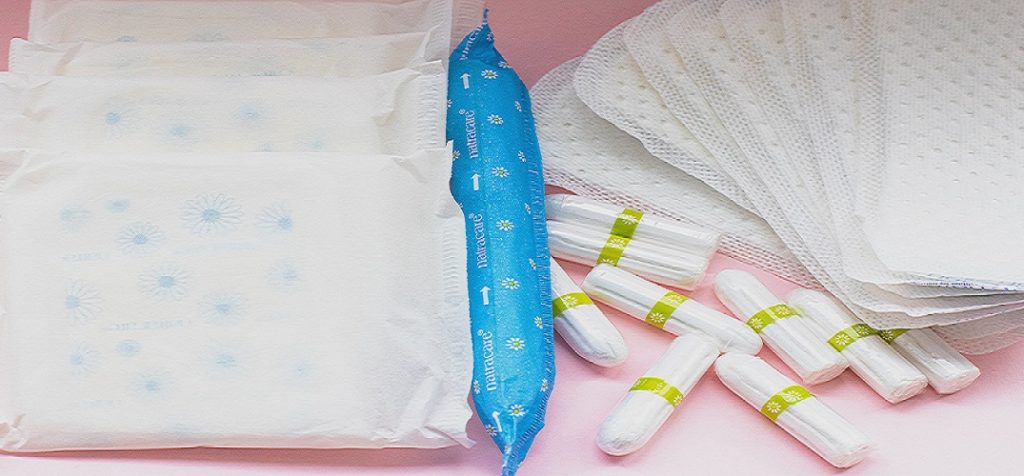About 52% of Nigeria’s female population is of reproductive age & menstruating. But a large number of these women including over 10 million rural & internally displaced girls & women cannot afford to buy disposable sanitary pads every month, on average these pads cost about 250 -400 naira per pack, and most women need at least 2 packs per month. These women find alternative materials such as cotton, wool, toilet papers, pieces of mattresses & in some rural settings leaves & feathers. Girls on their period are sometimes forced to miss school for the period of the cycle, and generally put their lives on hold. According to UNICEF, one out of ten African schoolgirls skips school or drops out entirely due to a lack of adequate menstrual products and proper sanitation.
Disposable sanitary pads aren’t only expensive, but they are not environment-friendly. Plastic pollution is one of the biggest contributing factors to climate change, studies show we might have more plastic in our oceans by 2050 than we do fish, and the taboo subject of sanitary waste makes up a percentage of this. 90% of a menstrual pad is made of plastic. Most women at a loss for adequate disposal methods just flush them down the toilet.
A study in the UK estimated that 700,000 pantyliners, 2.5 million tampons, and 1.4 million sanitary towels are flushed down the toilet every single day. Flushed sanitary waste blocks drain, floods homes and gardens, and litters the sea.
Disposable Sanitary pads do not only have adverse effects on the environment, but they also do not have great health benefits. These pads have exposed women and girls to several health issues like Urinary Tract Infection, Pelvic Inflammatory Diseases, Toxic Shock Syndrome, adverse and allergic reactions, burns, irritation, rashes, etc. Most of these diseases are a result of the chemicals in the pads they use or the use of unhygienic materials to care for their menstrual flow.
Most disposable sanitary pads contain synthetic fibers, petrochemical additives, and dioxin. Rayon is a synthetic made from sawdust and a byproduct of it is dioxin, which the EPA says is likely a cancer-causing substance. The US Environmental Protection Authority published reports showing that dioxin is linked to:
*Abnormal tissue growth in the abdomen and reproductive organs
*Abnormal cell growth throughout the body
*Immune system suppression
*Hormonal and endocrine system disruption.
Plasticized chemicals have also been linked to endocrine disruption and disease processes associated with heart disease and cancer.
What Alternatives are there? Reusable Sanitary Pads.
Reusable sanitary pads are economy friendly and a more viable option for a lot of women who do not have access to commercial sanitary pads. They are also safe for the environment and health.
By switching to reusable, environment-friendly pads women can help in the fight against climate change by reducing the amount of plastic that finds its way into our oceans. These pads are mostly made of cloth fabrics and can be perfectly safe and hygienic with proper care and cleaning. They contain fewer artificial products such as adhesives, plastics, and gels reducing health risks such as Irritability, reactions, and Toxic Shock Syndrome,
Reusable sanitary pads for internally displaced and rural school girls and women could mean reduced anxiety, improved livelihood, hygiene, comfort, and most importantly uninterrupted education.
Female activists have taken it up to themselves to go to rural areas, and Internally Displaced Persons (IDPs) Camps to teach women and young school girls about and how to use Reusable Sanitary Pads, providing them free lessons on how to make and properly use them, also providing the materials needed to make them. This has become a huge movement on Social Media, calling people’s attention to what affects the lives of millions of women.

